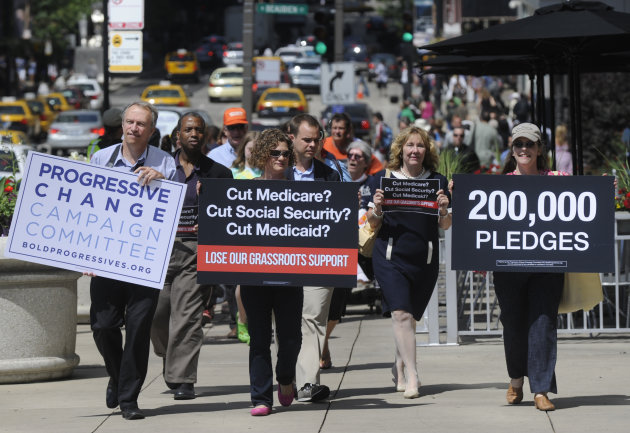Most Americans — even those who are legislators — know very little about the details of President Obama’s Affordable Care Act, so-called Obamacare. Next year, when it goes into effect, we will learn the hard way.
Many people lazily assume that the law will do roughly what it promises: give insurance to the uninsured and lower the cost of health care by limiting spending on dubious procedures.
Don’t count on it.
Consider just the complexity: The act itself is more than 906 pages long, and again and again in those 906 pages are the words, “the Secretary shall promulgate regulations …”
“Secretary” refers to Secretary of Health and Human Services Kathleen Sebelius. Her minions have been busy. They’ve already added 20,000 pages of rules. They form a stack 7 feet high, and more are to come.
Our old health care system was already a bureaucratic and regulatory nightmare. It had 16,000 different codes for different ailments. Under our new, “improved” system, there will be more than a 100,000.
Government likes to think regulations can account for every possibility. Injured at a chicken coop? The code for that will be Y9272. Fall at an art gallery? That means you are a Y92250. There are three different codes for walking into a lamppost — depending on how often you’ve walked into lampposts. This is supposed to give government a more precise way to reimburse doctors for treating people and alert us to surges in injuries that might inspire further regulation.
On Government-Planned World, this makes sense. But it will be no more successful than Soviet central planning.
Compare all that to a tiny part of American medicine that is still free-market: Lasik eye surgery.
Its quality has improved, while costs dropped 25 percent. Lasik (and cosmetic surgery) are specialties that provide a better consumer experience because they are a market. Patients pay directly, so doctors innovate constantly to please them. Lasik doctors even give patients their cellphone numbers.
President Obama didn’t kill American free-market health care. It began dying during World War II, when government imposed wage and price controls. At first, companies said, “Great, stability!” But then they realized that they could not attract better workers without raises. So companies got around the rules, as companies do. They gave “benefits,” like health insurance.
Government then distorted the market further by giving employer-based health insurance better tax treatment than coverage you buy yourself.
But employer-based insurance is nuts. Many workers feel locked into their jobs. Company insurance largely destroyed the health care free market, since employees rarely shop for the best service at the lowest price.
Now Obamacare may kill what’s left of that market.
Maybe we will soon be like Canada, where some people wait years for treatment. A producer from my TV show went to a Canadian town where the town clerk pulls names out of a box and then phones people to say: “Congratulations! You get to see a doctor this month!”
—–
Click below for the full article.
http://reason.com/archives/2013/05/01/why-obamacare-will-be-no-more-successful

